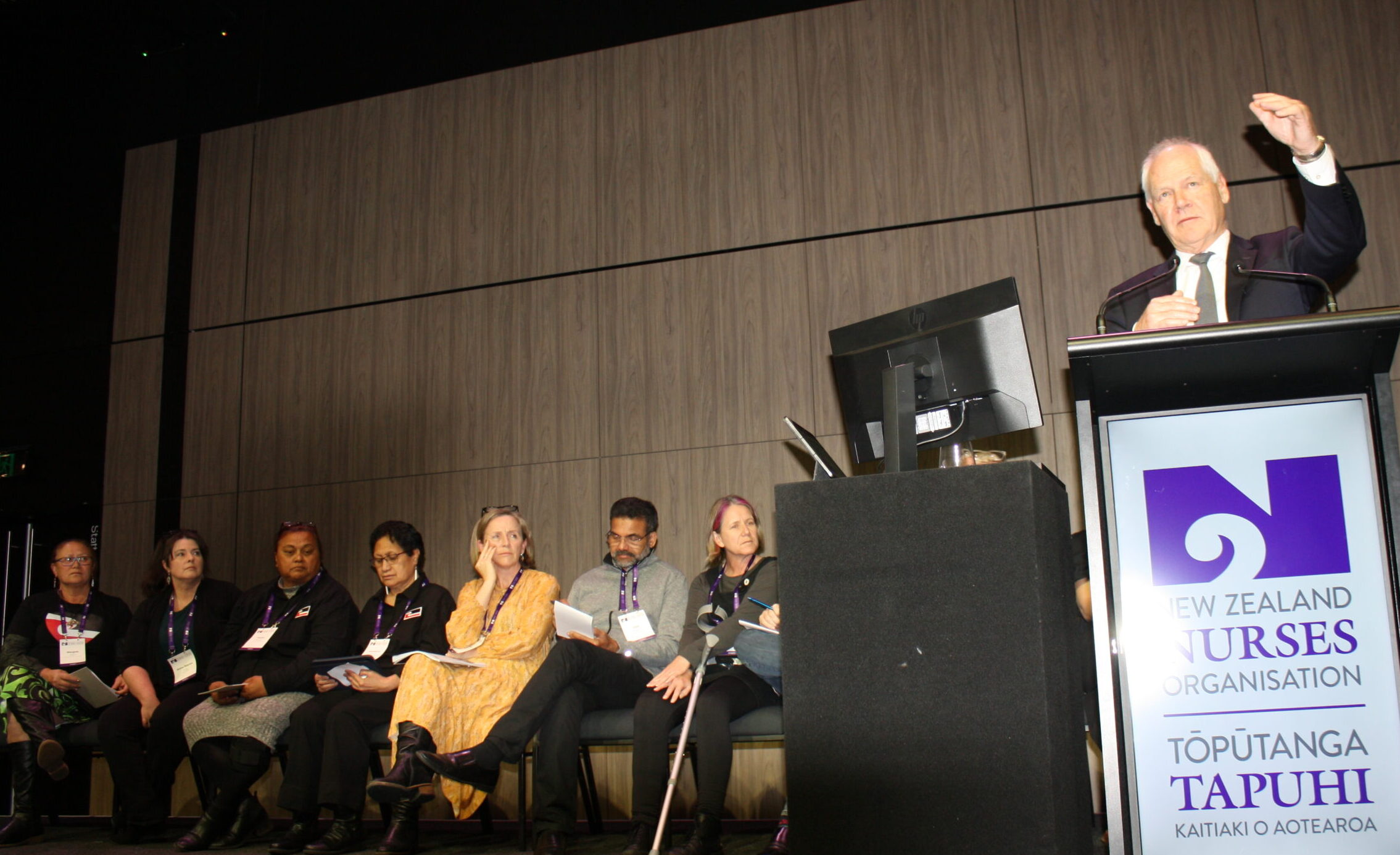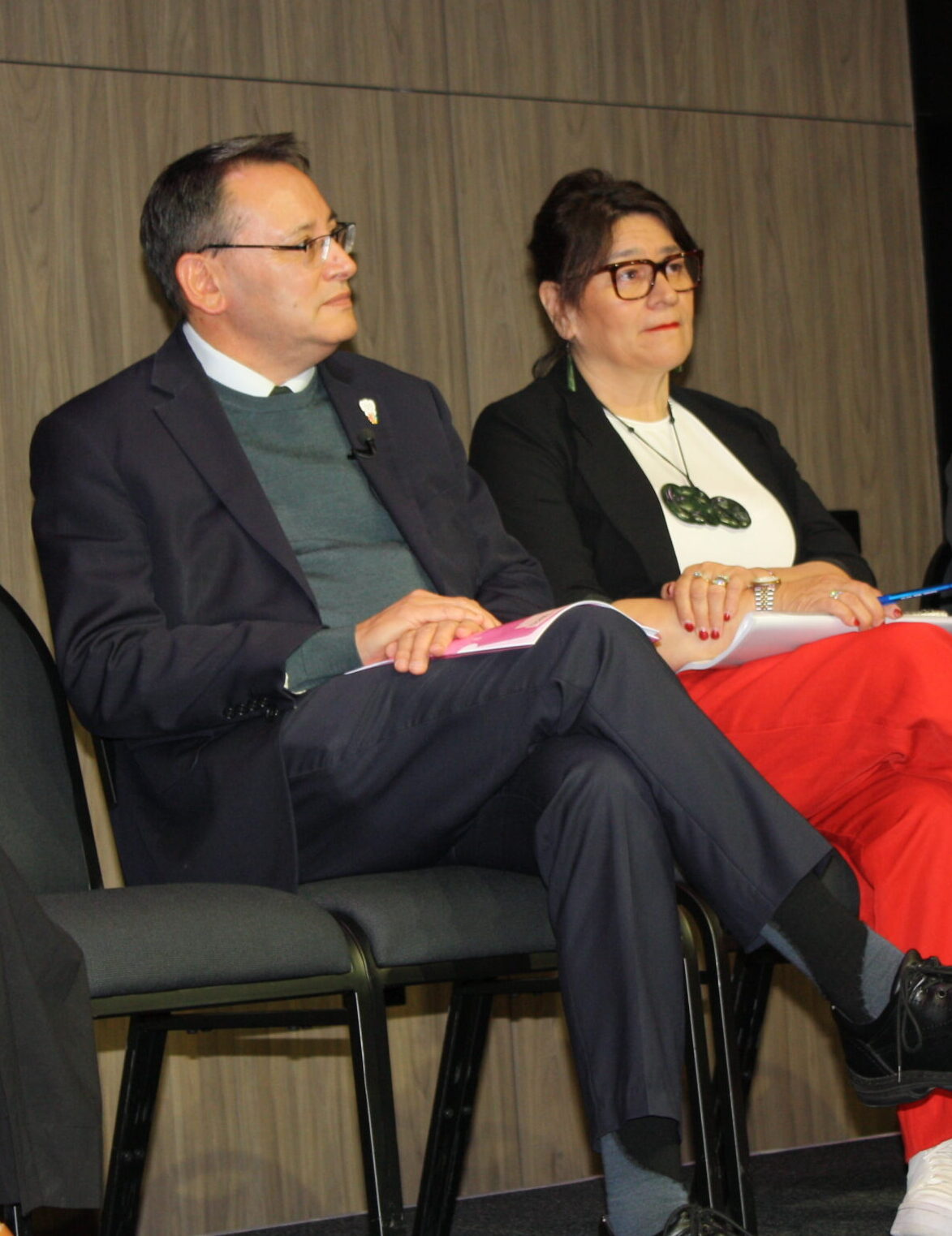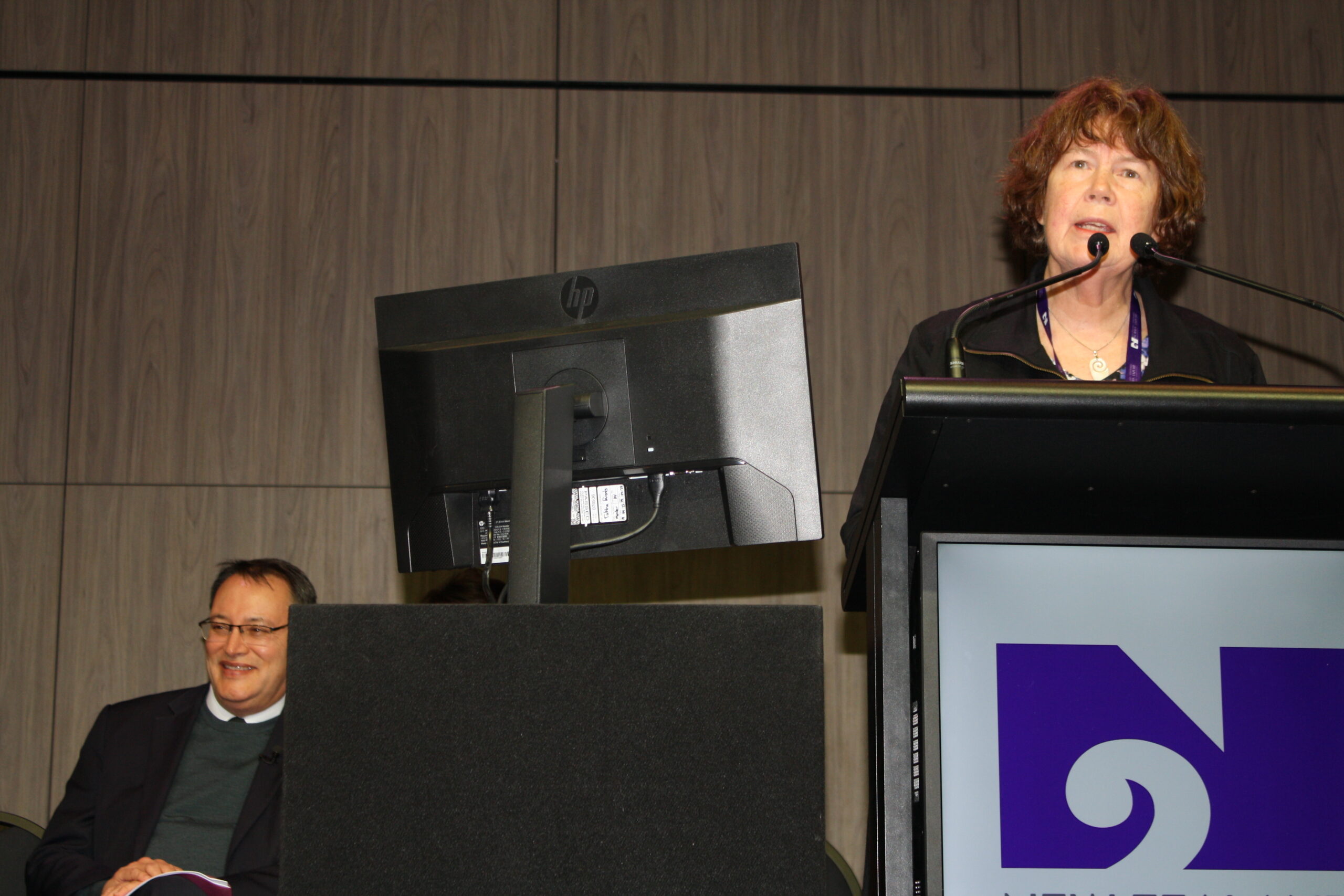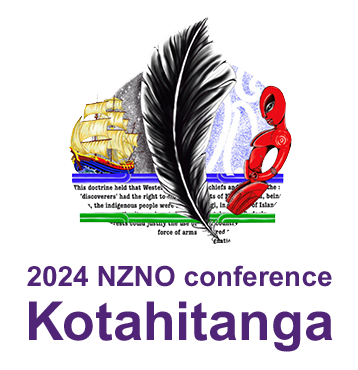NZNO — Tōpūtanga Tapuhi Kaitiaki o Aotearoa chief executive Paul Goulter told the organisation’s conference this month that nurses must “unashamedly” be the leading voice for health and social justice in Aotearoa.
“We now have the most unlikely and radical right-wing Government this country has seen since the Depression and the 1920s,” said Goulter. He predicts the Government will win a second term — “we need to prepare for that.”
‘It got so bad the Minister of Health said last week ‘targets save lives’. Really? A system, properly-focused, saves lives. Nurses save lives. Doctors save lives.’
“This Government will continue to favour the rich — it will weaken the frameworks that support the poor and disadvantaged.”
Not only only was there a “concentrated attack” on Māori and te Tiriti o Waitangi, but customary indigenous rights were also under threat, he warned about 180 members at the conference, which was themed Kotahitanga (unity).
Nurses ‘elegantly militant’?
To counter that — and build a case for a health system that was fair, equitable and accessible for both Māori and tangata tiriti, all ages, genders and wealth — Goulter said nurses could be an “elegantly militant” force for change. The phrase “elegantly militant” was first coined by the California Nurses Association.

“A force based on deep public respect and affection — a force that is prepared to agitate,” he said.
The nursing workforce needed to act “not in the mean-spirited, class-based and racially divisive approach of our current Government, but together, in unity and solidarity – kotahitanga”.
Post-election, the late Māori King Tuheitia had called for kotahitanga and collective action to resist this Government’s anti-Māori policies, Goulter said.
‘We’ve got to fight — are you ready to fight?’
As a powerful union with more than 60,000 members, “it now falls on us to pick up this mantle of kotahitanga . . . in our own ways and to address our own challenges”.
For nurses and kaiāwhina, this meant being visible in their workplaces, in the streets and at Parliament.
“We’re going to go into some uncomfortable spaces, right?”

Many had already done so, Goulter said — acknowledging NZNO member actions in Dargaville, Dunedin, Waikato, Whangārei and Canterbury, among others.
Goulter also took aim at the Government’s health targets, describing them as “silly rhetoric”.
“It got so bad that the Minister of Health said last week ‘targets save lives’. Really? A system, properly-focused, saves lives. Nurses save lives. Doctors save lives.”
The workforce now needed a clear policy direction, backed by evidence — and confidence.
“Confident in what we say . . . and in the respect that is held for our members”.
NZNO kaiwhakahaere Kerri Nuku said nurses could not continue to work in a system that was “so flawed, so broken, so underinvested, so undervaluing of nursing”.
“We’ve got to fight — are we ready to fight?”

Recently re-elected president Anne Daniels — an emergency nurse — said nurses could no longer adapt to a health system that was not working for so many.
‘We are the force for change. We are being seen and we are being heard.’
“We will focus on constructing a new narrative, followed by action — militant action if necessary — where it’s needed, to bind us together by prioritising the health and wellbeing of Māori, and in this way, lift us all up together.”
NZNO’s Maranga Mai! fixes, such as legislated and culturally-appropriate ratios were evidence-based and must be implemented, she said.
“We are the force for change. We are being seen and we are being heard.”





